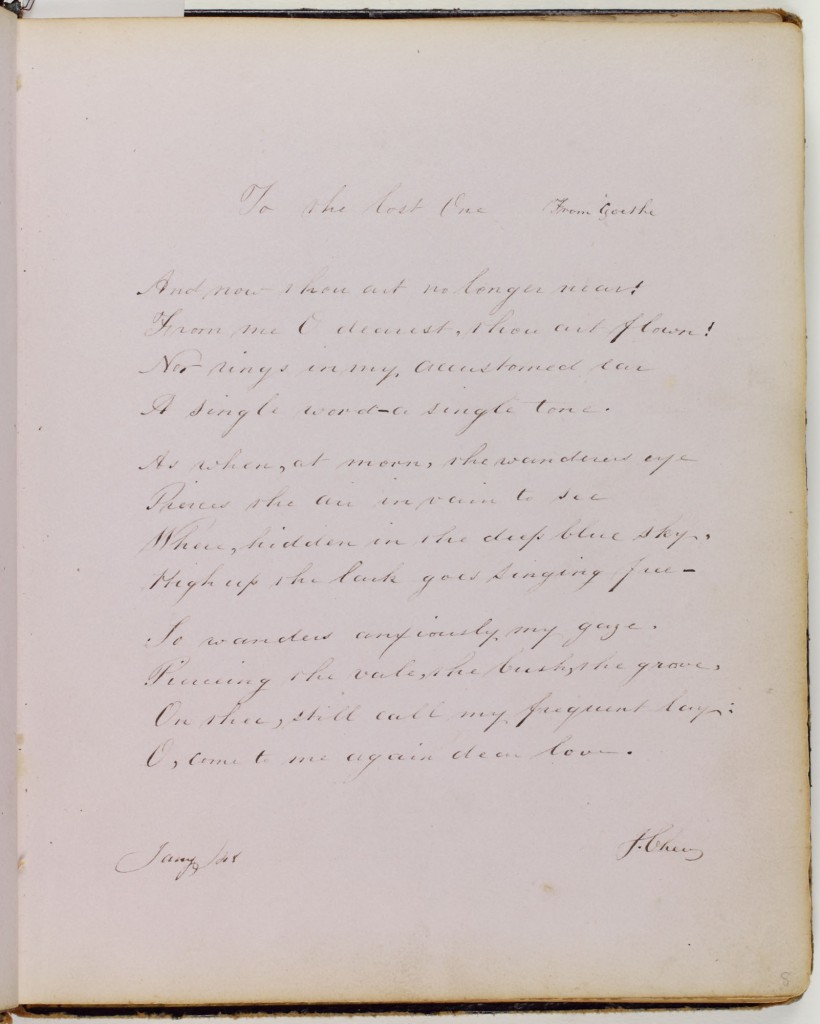Preface (3)
6|7|8|9|10|11-12|13|14|15|16|17|18|19|20|21|22|23|24|25|26|28|30|31|32|33
34|35|36|39|42|44|47|49|51|52|53|54|55|56|57|59|62| 63|64-68|70|73|75
 To the lost One From Goethe
To the lost One From Goethe
And now thou art no longer near!
From me O Dearest, thou art flown!
Nor rings in my accustomed ear
A single word–a single tone.
As when, at morn, the wanderers eye
Pierces the air in vain to see,
Where, hidden in the deep blue sky,
High up the lark goes singing free—
So wanders anxiously my gaze,
Piercing the vale, the bush, grove,
On thee, still call my frequent lay:
O, come to me again dear love.
Jan’y /48 J. Chew
This poem by Johann Wolfgang von Goethe (1749-1832), transcribed and possibly translated by John Chew, a Philadelphian barber and activist, is about heartbreak and searching for a lost love to return. The central trope is of the poet’s searching eye, anxiously “gaz[ing]” and “pierc[ing]” the sky as he tries to find his lost lover, who is now represented as a bird that has taken flight. The key word “piercing” suggests not only the speaker’s gaze, but also his piercing agony.
An English translation of this work by Goethe was not found.
Scholar Mary Maillard suggests this poem refers not so much to lost love as to the death of Joseph Cassey in January 1848. See also the Chew entries on p. 31 and p. 70.
